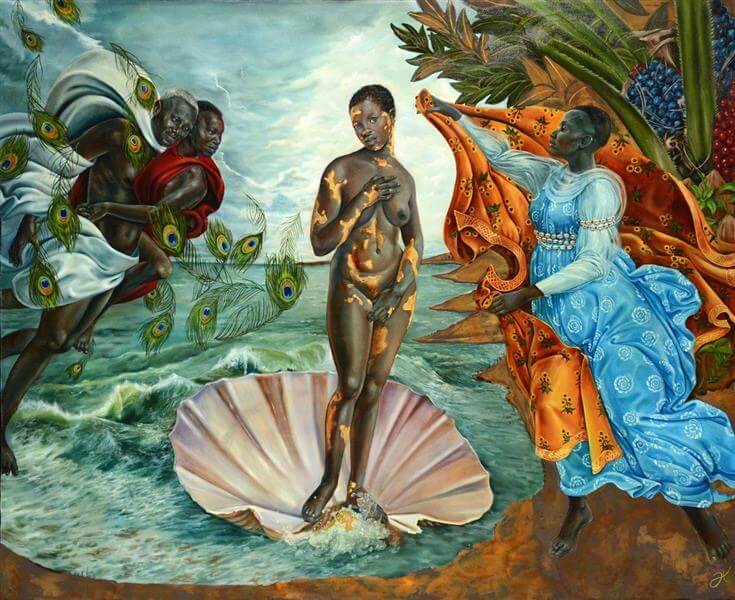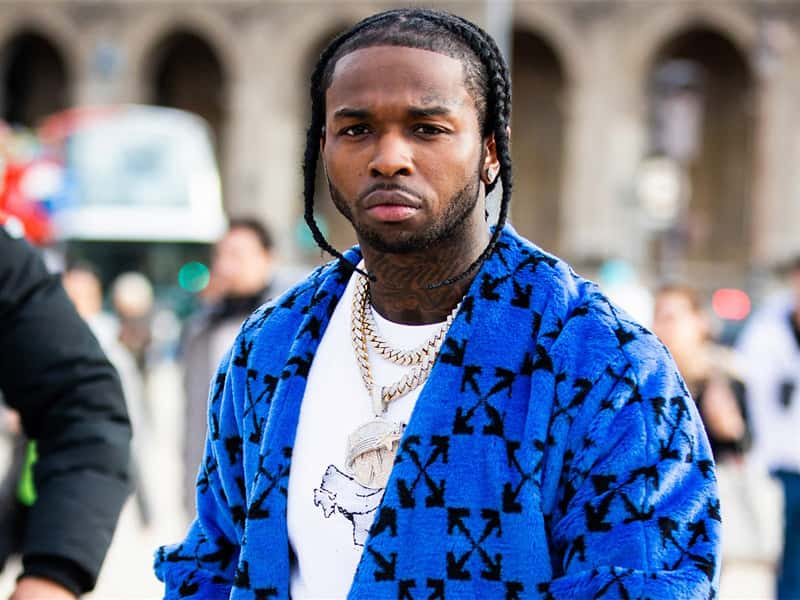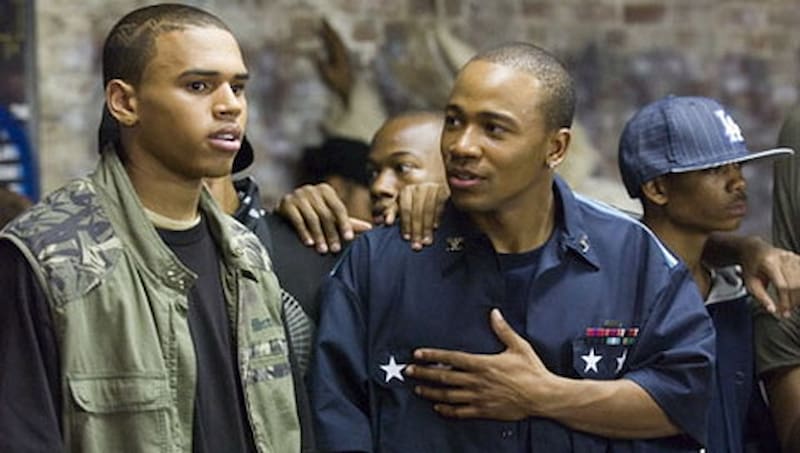West Africa is a region with a rich and diverse culture. This is reflected in its many legends, which tell stories of gods, heroes, and tricksters. The West African legends are a valuable part of its heritage and continue to be told and retold today.
These legends are essential for several reasons. They preserve the history and culture of West African people. They also provide entertainment and enjoyment. Here are five interesting West African legends you should read about.
Become an insider. Subscribe to our newsletter for more top trending stories like this!
People Also Read: How to Wear Mushanana(Rwandese Dress)
Anansi the Spider
Initially, stories of Anansi originated from the Ghana community. However, they have spread to the entire West Africa and the Caribbean. As a result, the legend is referred to by various names in different cultures, such as:
- Ananse
- Anancy
- Anansesem
Anansi is a resourceful yet cunning spider: a reminder that even the most minor and insignificant creature can be wise and powerful. He often gets into trouble, but he always outsmarts his opponents.
One of the popular stories of Anansi is how he tricked Nyame, the Sky God, into giving him the stories of the world. He used his cleverness in a challenge of the contest of wisdom. He knew Nyame would win, so he crafted a plan that led to his win.
You can read several books on Amazon to your children and enjoy Anansi, a great West African legend.
Through these stories, children are taught to be clever and careful of tricksters, besides being taught the dangers of trusting too much.
People Also Read: Interesting African Attires That Represent The Face of Africa
Join our Spotcovery Global Black Community Facebook Group for early access to exclusive content and to share in a lively discussion.
The Masquerade
The masquerade is a time for joy and celebration, but it’s also a time for reflection. It’s a complex and multifaceted tradition in many West African cultures, including the Yoruba, Igbo, and Ewe cultures.
Masquerade is a social event, a form of art, and a religious ceremony. The villagers express their creativity, spirituality, and sense of community during this event. The masquerade is a living tradition, and it continues to evolve as new generations of artists and performers bring their unique perspectives to the tradition.
It revolves around a group of spirits dressed in elaborate masks and costumes who come to Earth to celebrate the harvest. The masquerade legend has been passed down for centuries and is a way for the villagers to connect with their past and celebrate their future.
Here are the four main significance of the masquerade in West African culture:
- It’s a time for reflection on the past and the future. The spirits represent the ancestors, who teach the villagers about their heritage.
- A way to connect with the spirit world, for the spirits are believed to bring good luck, health, and prosperity to the villagers. The masquerade is a way for the villagers to ask for the spirits’ help and give thanks for their blessings.
- A celebration of the harvest or celebrate the abundance of crops. The spirits are also seen as the ancestors and are believed to be watching over the villagers and ensuring a bountiful harvest.
- It’s a form of art with dances and songs that are complex and well-choreographed. Dancers wear masks and costumes that are elaborate and intricate. They showcase their beauty and creativity.
To further understand this tremendous West African legend, here’s a book on Amazon to assist.
People Also Read: How to Wear Mushanana(Rwandese Dress)
The Water Spirit
This legend is also known as Mami Wata and is usually female. The origin of this complex and fascinating figure is obscure. The head and torso of these beautiful water creatures are that of a human, and the rest of the body is the tail of a fish. They live in water bodies like lakes, rivers, or oceans and are revered in West, Central, and Southern Africa and the Afro-American.
Become an insider. Subscribe to our newsletter for more top trending stories like this!
There are numerous stories of people who have been lured to their deaths by the Water Spirit or possessed by her spirit. She is benevolent as she grants wishes. Also, she is vengeful when angered. This water spirit is known to be powerful and present in many if not all, African cultures.
The water spirit is known for the following attributes and powers:
- She brings good fortune to those who worship her. Besides, she helps people achieve their goals and protect them from harm.
- She is a beauty to behold. Her long hair, glowing skin, and piercing eyes seduce men and women.
- The water spirit is also known to grant riches and wealth. In fact, those seeking financial success invoke the legend.
- To women struggling to conceive, the water spirit helps them with fertility and enables them to get children.
- Although the spirit is known for all the good things, she is sometimes dangerous. She’s known to lead people to their death. Others have become possessed or controlled by her.
Check out these books on Amazon with the water spirit stories.
People Also Read: African American Cultural Values with Rich History
Oshun
Oshun is a powerful spirit, goddess, and one of the great West African legends in the Yoruba religion. Several stories depict her origin. In one story, she’s said to be the daughter of Obatala, the creator god, and Yemoja, the ocean goddess. In another story, she emerged from the river Niger.
Oshun is a powerful force of nature and is said to control the flow of rivers and streams and can bring drought or flood. Alongside, she’s associated with the number five.
In Yoruba art and culture, Oshun is popular. The female spirit is diplayed in textiles, sculptures, and paintings. Similarly, people have composed stories, poems, and songs on the same. She is worshipped through rituals, offerings, and festivals.
On the same note, read more from this book available on Amazon.
The Hira
The Hira is a mythical monster in West African mythology with the Songhai people. It’s a dangerous and powerful huge serpent that lives in River Niger.
In Songhai mythology, Hira is associated with the Zin, a group of mythical water spirits. They are revered and represent the dangers of the natural world and can control the weather. Interestingly, they can take on the form of humans or animals.
The above five West African legends clearly depict the rich African culture. They’re a simpler way of passing knowledge and values from generation to generation.
People Also Read: The Bodi Tribe or Ethiopia Where Men Drink Cows Blood and Milk
Nearly 80% of consumers visit directories with reviews to find a local business. List your business for free in our exclusive Spotcovery Black-Owned Business Directory.
Spotcovery offers unique and fresh daily content on Black culture, lifestyle, and experiences. We talk about everything black, black people, black-owned and black-owned businesses. We also deliver authentic and relevant content that will inform, inspire and empower you! The future of black media is critical to today’s black experience! Our primary audience includes African American, African, Afro-Caribbean, and people of African heritage. Black culture is for the culture!
Become an insider. Subscribe to our newsletter for more top trending stories like this!





